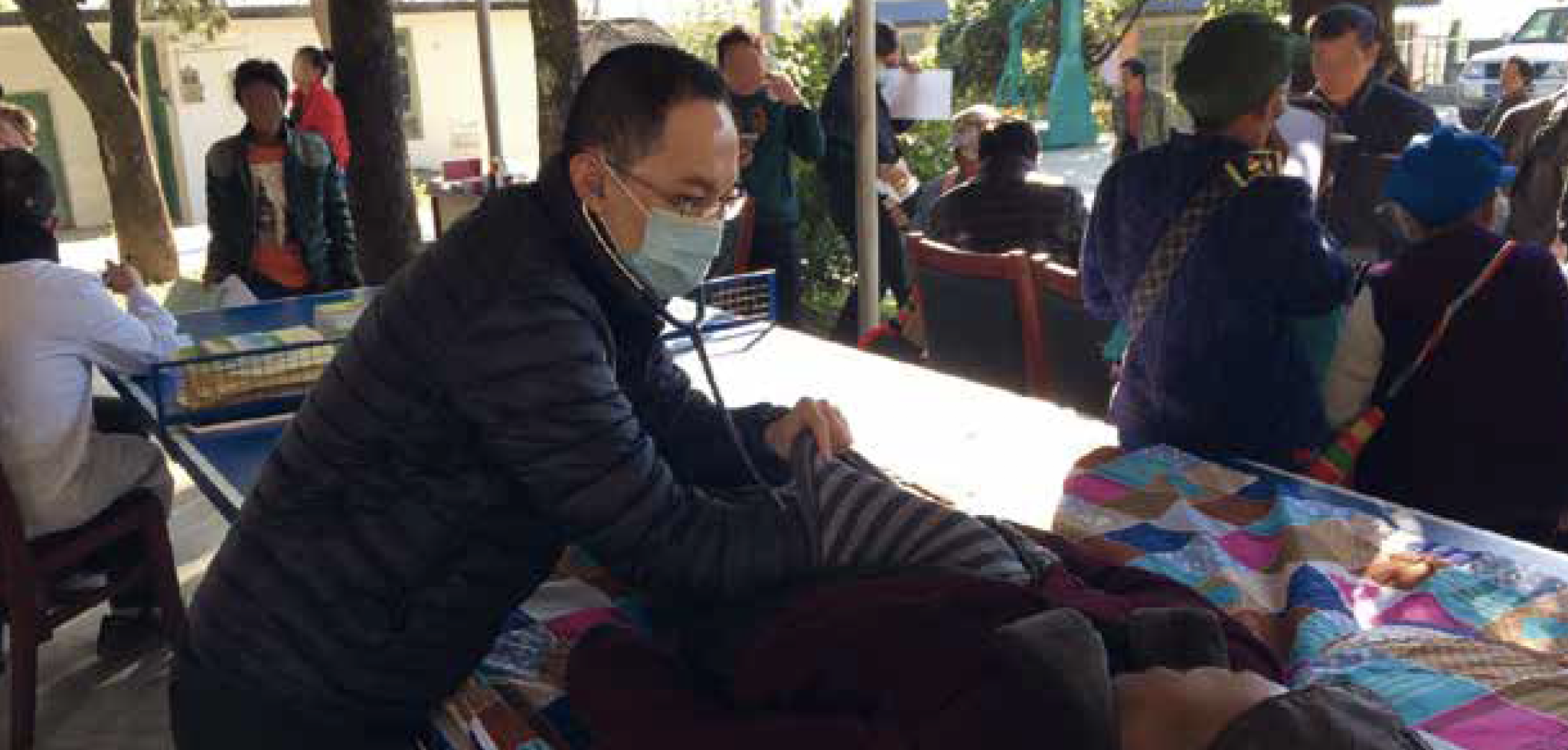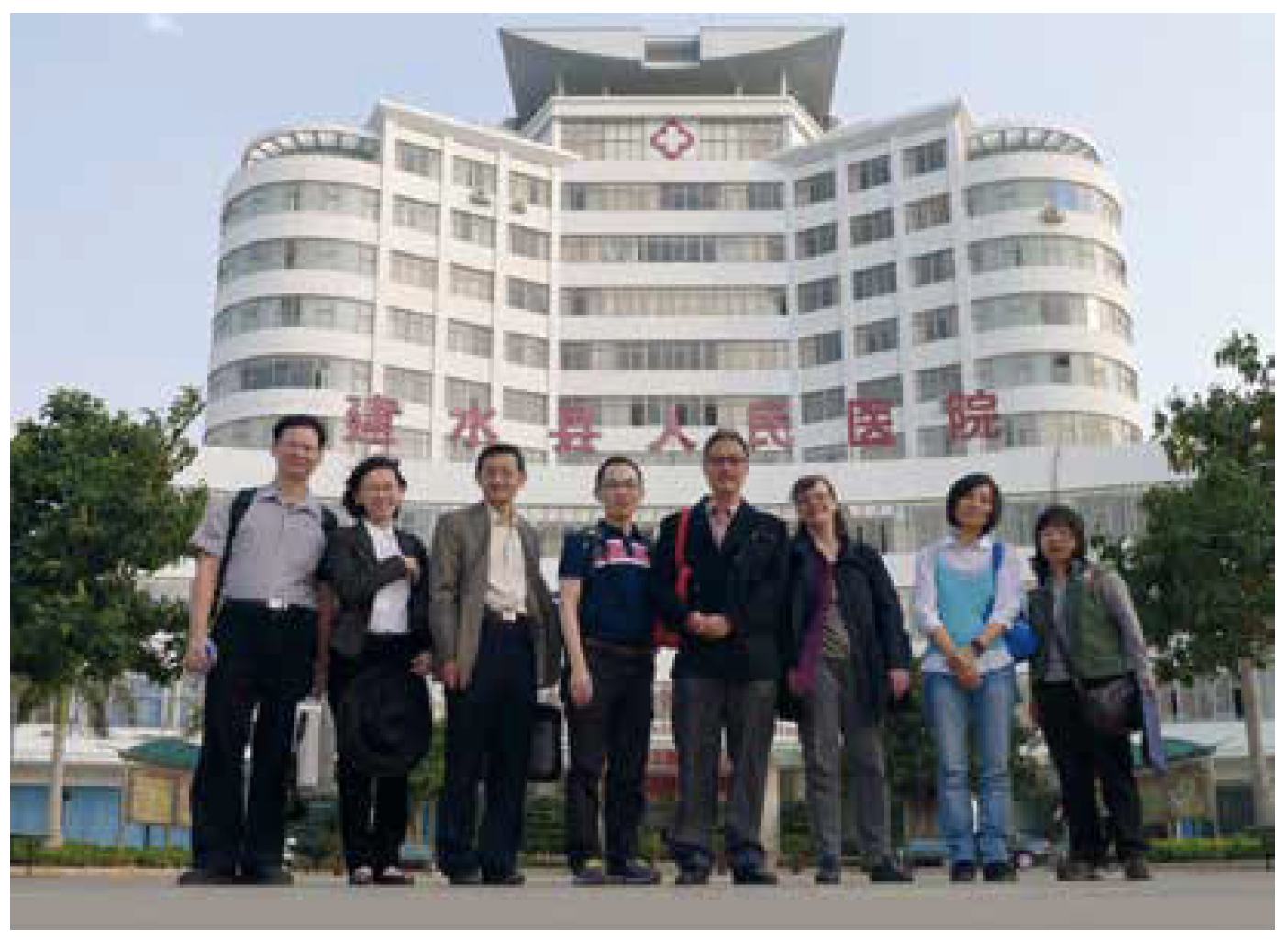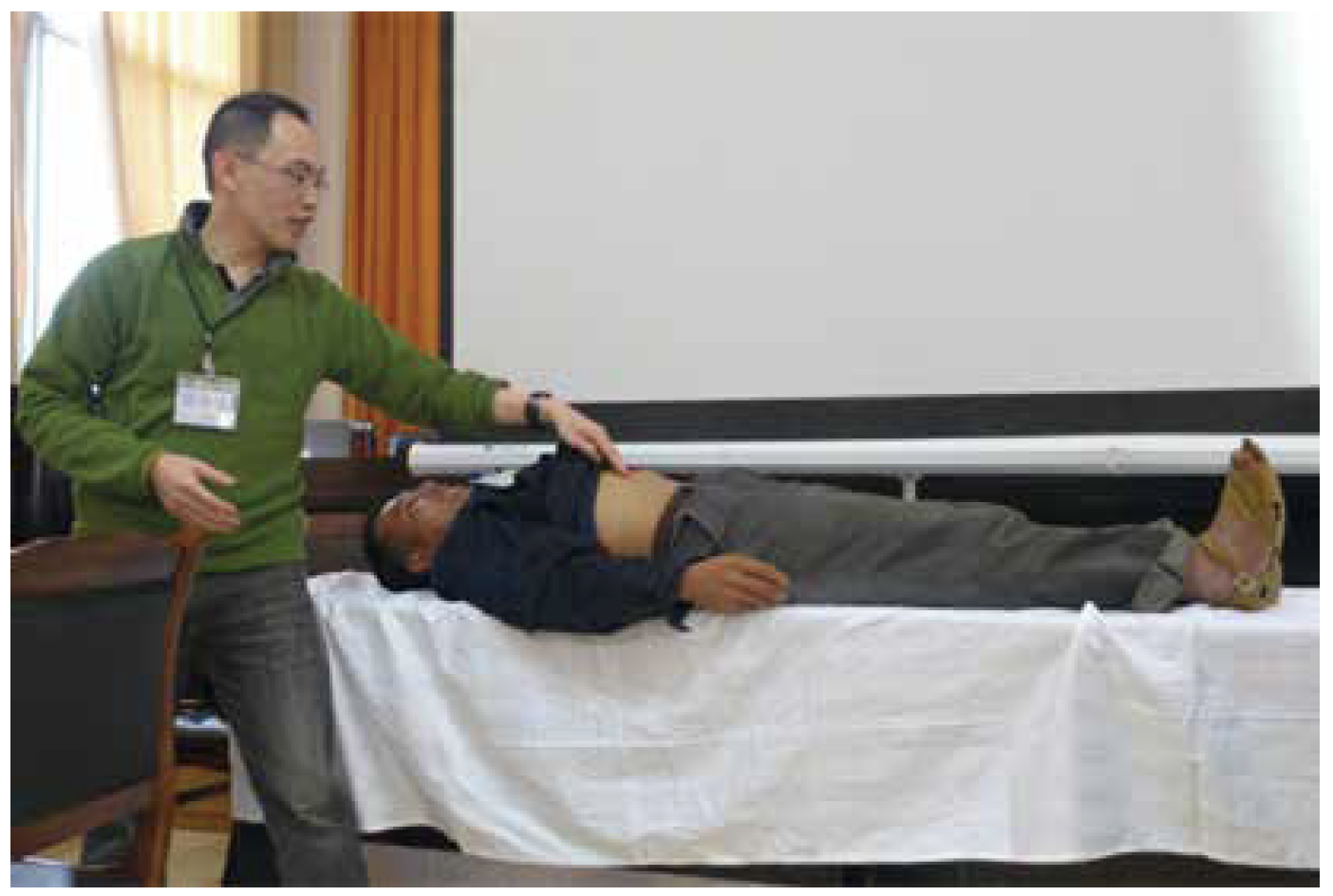© Hong Kong Academy of Medicine. CC BY-NC-ND 4.0
HEALTHCARE FOR SOCIETY
Into the circuit of a pioneering mind:
An interview with Professor Vincent Mok
Natalie Cheuk1, Caitlin Yeung1, Cherry Lam2
1 Year 4 (MB BS), University of Hong Kong
2 Year 5 (MB ChB), Chinese University of Hong Kong
Professor Vincent Chung-tong Mok leads a research team at the Faculty of Medicine, Chinese University of Hong Kong (CUHK) that conducts cutting-edge studies in Cerebral Small Vessel, Alzheimer’s and Parkinson’s disease. He is a beloved teacher who has been elected Teacher of the Year seven consecutive times and one of the primary architects of the undergraduate medical education reform Global Physician Leadership Stream (GPS) programme in the Faculty. In his roles as a clinician, researcher, and educator, Prof Mok applies a patient-centred perspective, working in different capacities towards the common goal of alleviating and preventing suffering. His humanitarian spirit led to his collaboration with Medical Services International to provide health education to ethnic minorities in some of the most impoverished villages in mainland China, and a recent directorship for a training programme empowering social workers and other healthcare professionals to care for dementia patients and their caregivers in Hong Kong. His desire to serve has consistently guided his career decisions, his approach to patient care, and his research direction.
Road to neurolog
Professor Mok first became interested in neurology during his postgraduate training at the Prince of Wales Hospital. He noticed that the chronic nature of many neurological diseases requires the clinician to develop a strong and supportive long- term relationship with patients. He relished the opportunity to connect with patients, especially the older patients, whom he holds close to his heart. The analytical rigor demanded in the specialty also appealed to him. The combination of human connection, intellectual challenges, and the supportive senior specialists he met during his early career drew him towards neurology, which has since become his life’s work.
Today, Prof Mok regards research to be an integral part of his duties. However, earlier in his career he was so focused on developing his clinical skills and on clinical service that research did not cross his mind until after specialty training. His perspective on research changed when he witnessed his patients with various neurodegenerative diseases deteriorate before his eyes to the state where they became dependent on others for self-care, despite already receiving the best available treatments. After listening to patients voice their frustration and desperation when treatment options had been exhausted, Prof Mok resolved to help these patients and their families who struggled to maintain around-the-clock care. He understood to find a cure for these devastating neurological diseases, one needs to tease out the mechanisms underlying these diseases. Seven years ago, in partnership with another physician-neuroscientist, the team pioneered laboratory work focusing on untangling the complex mechanisms of Alzheimer’s disease, which is the most common neurodegenerative disease. They later observed a strong link between microvascular dysfunction and Alzheimer’s disease. The team recently discovered that a drug for patients with diabetes could significantly reverse this microvascular dysfunction. This provides hope that disease progression might be slowed by tackling this microvascular dysfunction.
On the clinical side, in partnership with a computer engineer, his team has made leaps and bounds towards developing magnetic resonance imaging–based machine learning programmes for detecting early-stage Alzheimer’s disease. In future, this new technology may guide clinicians to select who should receive confirmatory investigation, such as positron emission tomography scan, for diagnosing early Alzheimer’s disease. When identified early, there is hope that prompt appropriate intervention can halt or slow the progress of irreversible dementia. Notably, in partnership with neurosurgeons, the team pioneered the use of deep brain stimulation for advanced Parkinson’s disease in Hong Kong two decades ago. Deep brain stimulation has now become a standard treatment in Hong Kong and has made dramatic improvements for many patients with advanced Parkinson’s disease.
Expanding the minds of the next
generation
In addition to patient care, Prof Mok has an active role in teaching the next generation of doctors. Under the GPS programme at CUHK, pioneered by Professor Justin Wu, Professor Simon Ng, and himself, students are encouraged to seek out research opportunities, take part in humanitarian service trips, and gain exposure to leadership training or hospital administration, subjects not usually covered in a conventional medical curriculum. Professor Mok encourages all medical students to take advantage of the relative leisure in undergraduate years to explore one’s strengths and develop interests before zooming into professional responsibilities. In other words, it is always best to be exposed early, but as we have learned from Prof Mok’s own journey, it is also never too late to begin. Professor Mok believes that each student is a “gold mine”, filled with different talents. He hopes this GPS platform can help to ‘dig out’ their talents for the benefit of the society in the long run.
As an accomplished clinician-researcher, Prof Mok would advise young professionals interested in research to do some soul-searching and discover their true motivation. He hopes that budding researchers realise that medical research should be conducted with the ultimate goal of bringing healing and protection to individuals and to the society, rather than for pursuit of recognition.
Spirit of giving
In addition to his career at CUHK and the Prince of Wales Hospital, Prof Mok also enjoys and encourages active participation in voluntary services. In 2003, he went on the first of a series of service trips to Yunnan in mainland China with Medical Services International. This first trip was in the wake of the SARS (severe acute respiratory syndrome) epidemic. Hong Kong doctors who worked through the SARS public health crisis became trained in infection control and were well equipped to fill in the gaps of knowledge in deprived regions. His first service trip was a truly eye-opening experience. He saw the strong need for health education which inspired him to return repeatedly over the next 12 years, leading teams of healthcare workers in training the village doctors and regional hospitals in areas of general medicine and neurology among ethnic minorities. The days were long and gruelling, but the joy of service outlasted any hardship and each trip became a lesson in the gift of giving.
Locally, Prof Mok, in partnership with a clinical psychologist and the Hong Kong Council of Social Service, has started a new training programme targeting social workers who serve dementia patients and their caregivers in community settings. Aptly named the GIFT programme (GIFT Care Professional Certificate Programme in Promoting Well-being in Informal Caregivers of Dementia), the programme aims to advise healthcare workers on how to promote psychological and physical well-being in caregivers of dementia patients. The first cohort of students entered the course in January 2019 and the third cohort started this year. With the ‘ageing tsunami’ on the horizon, Prof Mok anticipates that there will be more and more informal caregivers of dementia. These caregivers are commonly the patients’ spouses or children. Many will likely experience significant stress and feelings of helplessness and he hopes that this programme will become a “GIFT” to these informal caregivers who give selflessly to their loved ones suffering from dementia.
Finding hope in hopelessness
Reflecting on the past 20 years in medicine, patient stories stood out as the most rewarding moments in his career. He remembers a young man in his mid- twenties who was his youngest case of Parkinson’s disease. Professor Mok experienced a mix of emotions regarding this case: partly disbelief, and partly saddened by the many challenges this patient will be facing, from employment to social relationships, to even self-care in the long term. Professor Mok encouraged this patient to connect with other patients with Parkinson’s disease for mutual support. Over the years, this patient eventually managed to start a support group for other young patients with early-onset Parkinson’s disease who were facing similar crisis and challenges in life. Encouraged by his serving heart, in 2013, Prof Mok nominated this young patient for a Top Ten Regeneration Warriors award and eventually this patient became the first patient with Parkinson’s disease to receive this award.
“My life difficulties are nothing compared to that faced by my patient, yet even when faced with such health challenges he still has the heart and strength to help others. I am truly inspired by him. Indeed, I consider this young patient and many of my patients, as well as their dedicated caregivers, my ‘teachers of life’. I am really blessed through serving them,” reflected Prof Mok. He also remembers being pulled aside suddenly by a man he did not recognise at the hospital 2 years ago. It emerged that he was the son of a patient under Prof Mok’s care for few years who had recently passed away. He had recognised Prof Mok and expressed his heartfelt gratitude to him for looking after his mother throughout her illness. Although he does not work for recognition, Prof Mok shared that these moments he feels are reward enough.
Most valuable lesson
To this day, Prof Mok always ends a consultation with the question: “Is there anything else that I may help you with?” inviting patients to discuss their thoughts and worries with him. Staying true to his course to alleviate and prevent suffering, his passion to serve has formed the foundation for his success and has surely impacted countless patients positively in more ways than he can count. To conclude, Prof Mok reiterated the most valuable lesson that he has learned: it is truly more blessed to give than to receive.

Figure 1. Professor Mok examining an elderly lying on a table tennis table in the back yard of a village primary school. Yunnan, China, 2015

Figure 2. Professor Mok (fourth from left) with other members of Medical Services International, including neurosurgeons, neurologists, and neuroradiologists from Singapore and Taiwan. Yunnan, China, 2012

Figure 3. Professor Mok teaching physical examination in a training session for village doctors. Yunnan, China, 2014

